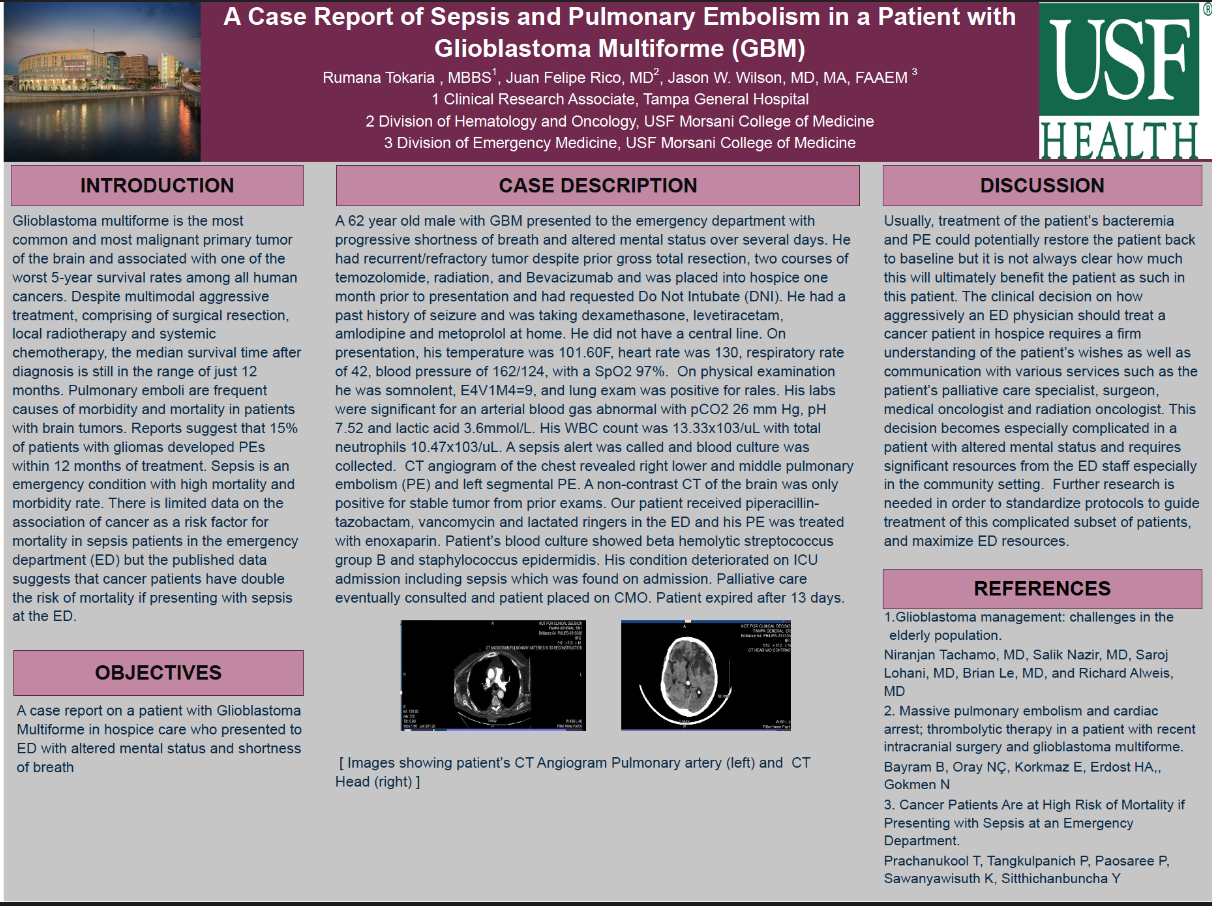- Journal Club Worksheet
- PGY-3 Rotation
The USF Emergency Medicine Research Section is responsible for organizing and creating a longitudinal research curriculum for the residency program and tracking the publications and presentations by residents and faculty for submission yearly to the RRC. The curriculum includes education in the IRB and study creation process, evidence based medicine and statistical concepts, as well as a journal club that meets eight times per year along with a PGY-3 clinically appraised topic presentation that often results in a publication for the resident.
The emergency medicine research section also acts as the hub for ED based acute care inpatient hospital studies. Each year, we initiate 10 new sponsored clinical studies while maintaining 4-5 ongoing clinical studies in the ED. In addition, we also work with other service lines to identify and enroll patients into time sensitive studies. research department. Patients are identified for studies using research assistants that work in the emergency department 24 hours a day, as well as clinical decision support tools in the electronic medical record. Working closely with Tampa General Hospital Office for Clinical Research, patients are followed throughout their hospital course and during subsequent visits at our onsite outpatient clinic. We also have 1-2 investigator initiated studies at a time – often created by residents with input and assistance from our core and clinical faculty.
Residents become involved in research and the research curriculum beginning their intern year but formerly rotate with the research section during their PGY-3 year. During that month, residents act in an administrative role as a liaison between research staff, student volunteers, and research assistants while also providing clinical guidance and assessment of research patients when appropriate for clinical studies.
In addition, our team is able to leverage the research infrastructure to support investigator initiated projects as well as resident, medical student, graduate student as well as honors college education at the University.
The Emergency Medicine Research Section offers a one month third or fourth year medical student elective rotation (time period can be modified as needed) as well as a summer program for select undergraduate students, graduate students and rising second year medical students. At times, we are able to provide funding for summer students. (MDR 8710)
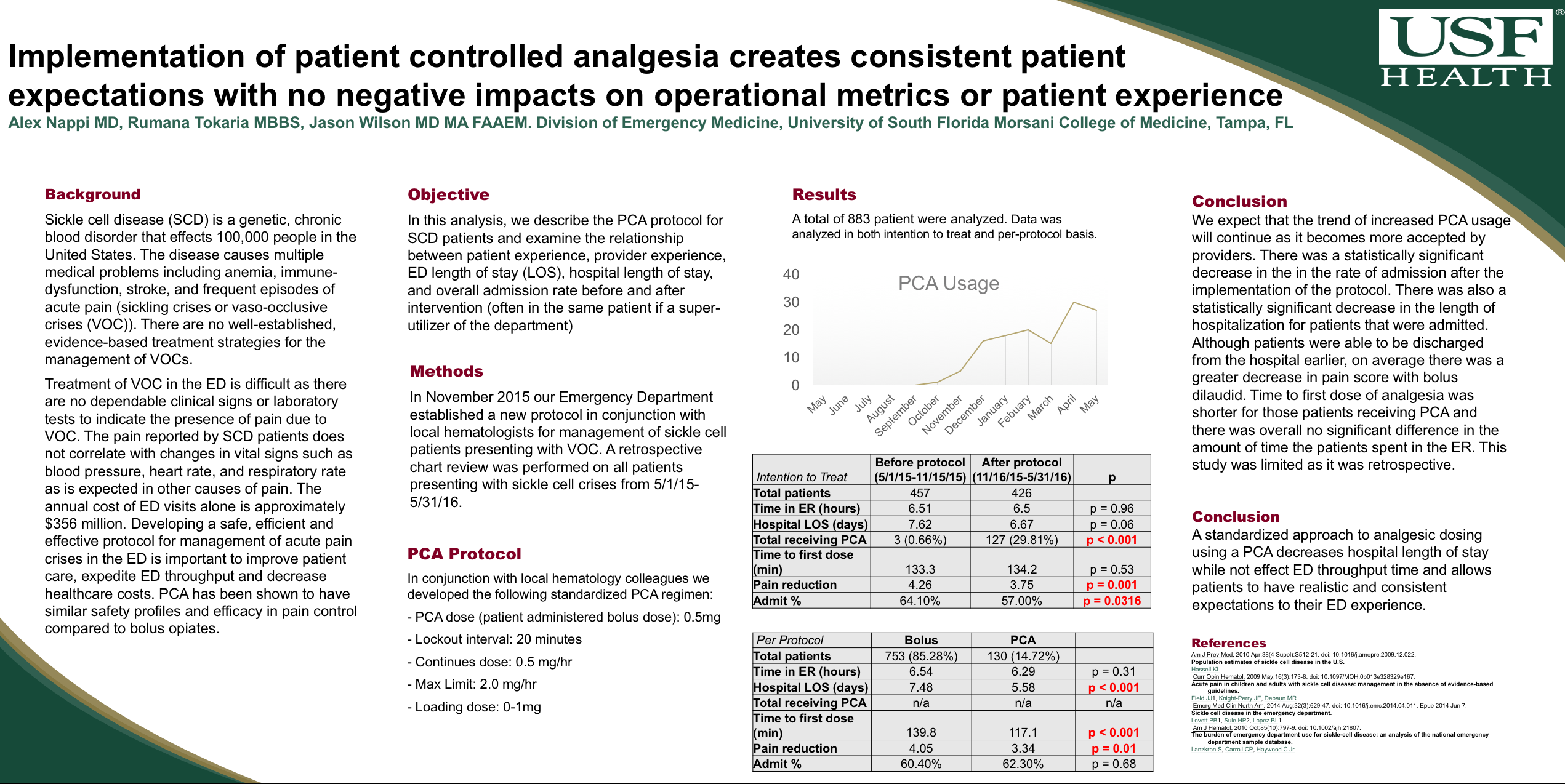
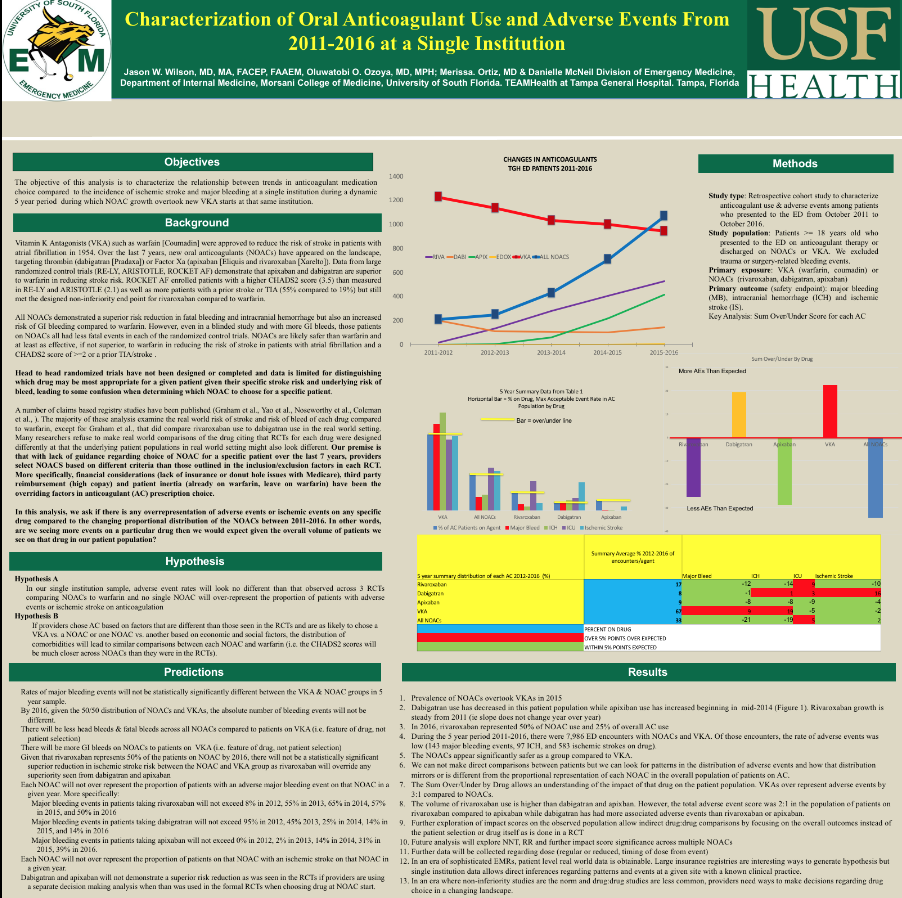
Resident Scholarly Activity Requirement
Scholarly activity is required by the ACGME as part of emergency medicine training. Minimum requirements exist to set a baseline. The USF EM curriculum is designed to ensure that all residents excel well above the minimum requirements in all aspects of training. In order to meet the resident scholarly activity requirement, a resident must contribute to body of knowledge in an original creative manner while meeting longitudinal scholarly milestones throughout the entire training period.
Scholarly activity at USF EM should not be thought of as a single project or a one-month rotation. Instead, scholarly activity is practice that produces a lifelong learner with the toolkit to contribute knowledge to the field of emergency medicine. Having said that, there are specific tangible requirements to mark progress that are found below.
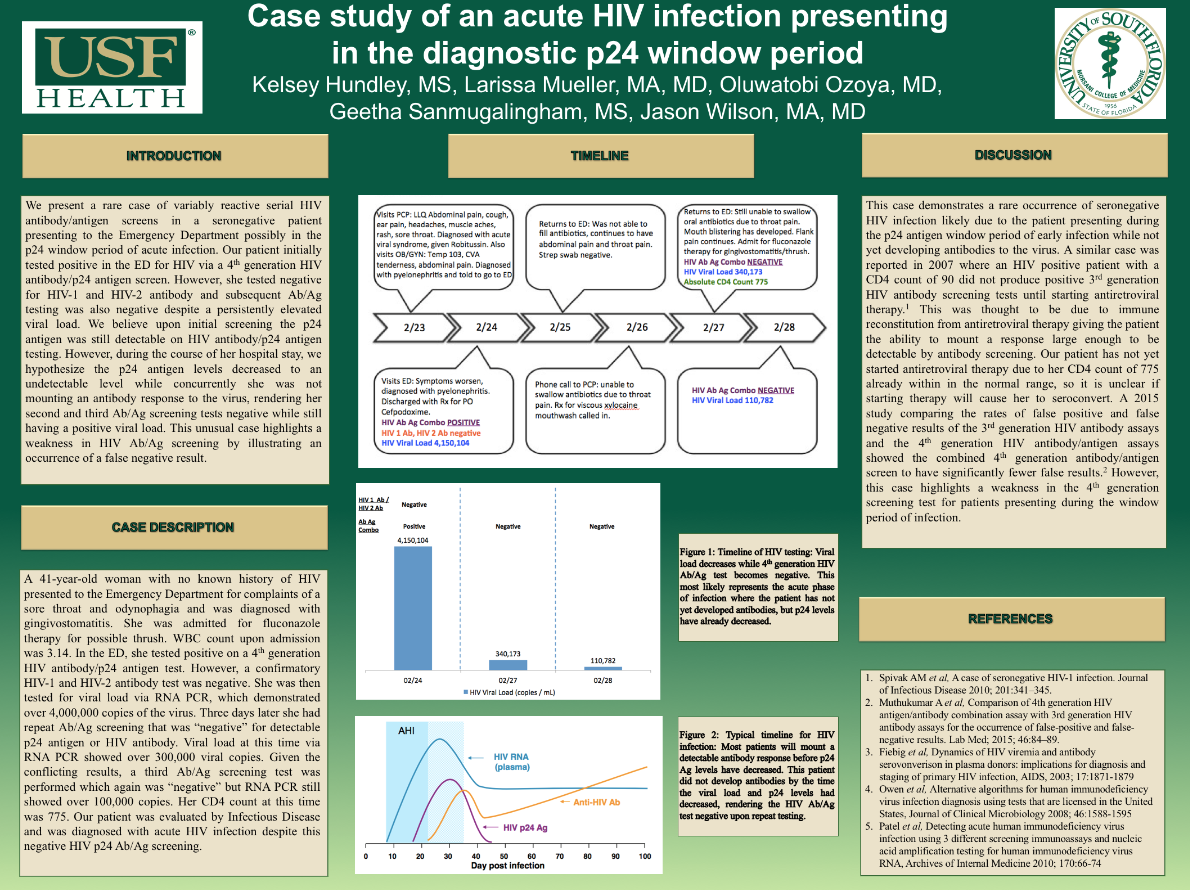
Beginning in 2017, we implemented a longitudinal research experience into the curriculum that ensures that all residents have the opportunity to participate in original scholarly activity. During the PGY-1 year, residents are paired with staff research assistants and more experienced learners and faculty to develop projects. These sessions occur both during grand rounds time periods and outside of those scheduled time periods as needed.
To fulfill the USF EM and ACGME requirements for scholarly activity, each resident will design an original research hypothesis in collaboration with a faculty member. The project can utilize retrospective data obtained from the electronic medical record after appropriate permissions. Alternatively, residents with original clinical research questions or hypotheses that necessitate an intervention can conduct prospective studies if the process is initiated in sufficient time during training. Most prospective projects, especially those with a patient intervention, will need to be proposed by the end of the PGY-1 year.
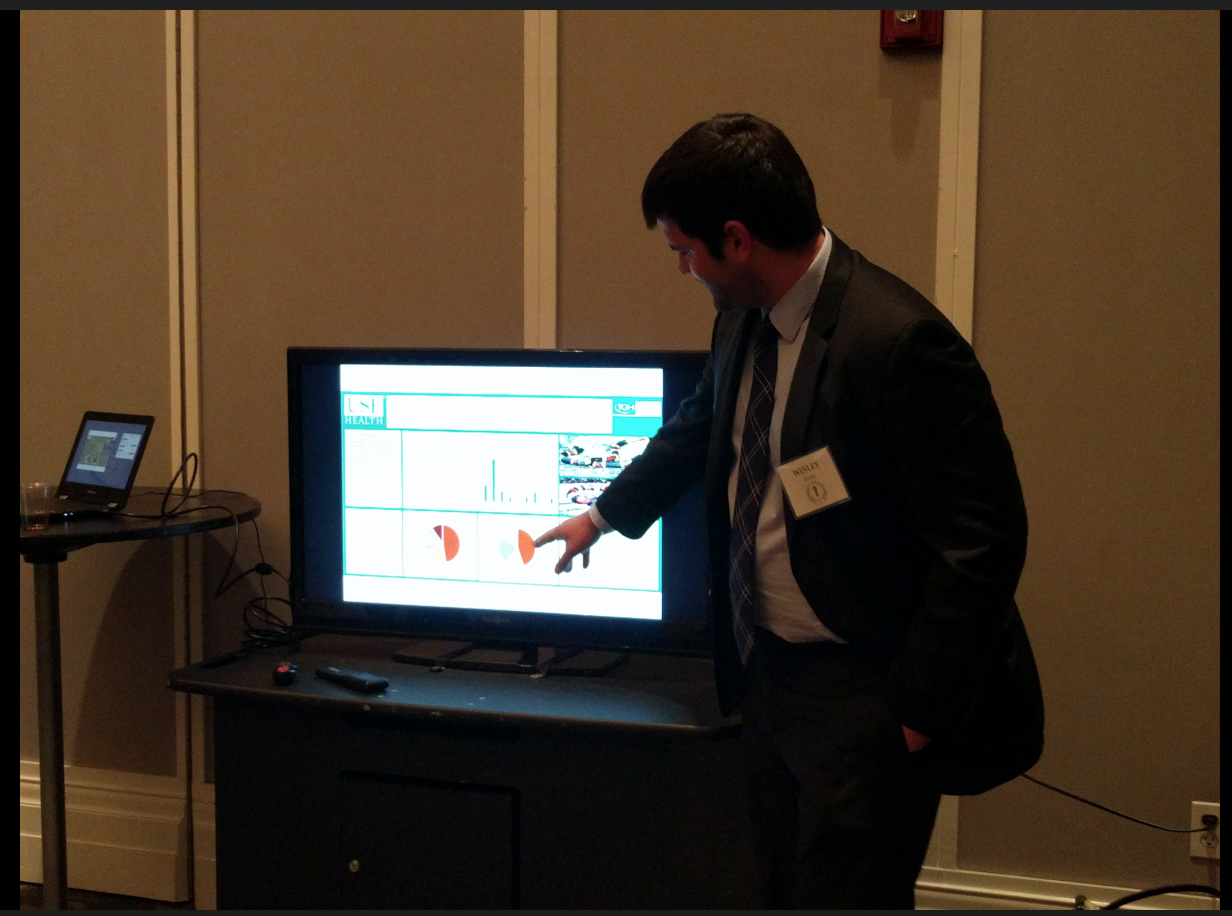
In addition, the resident spends one month on the Research Rotation, usually during the PGY-3 year. This month provides an opportunity to both complete outstanding projects as well as to serve in an administrative capacity within the research division. During the research month, the resident should plan to attend scheduled research division meetings, site initiation/monitoring and closeout visits, as well as IRB and feasibility meetings. During the rotation, the rotating research resident should serve as an educational liaison to the research assistants that work every day in the emergency department to identify appropriate research patients, as well as to any students rotating with the research division. Residents will complete 4 clinical shifts and 16 hours of teaching shifts during this month as well.
Each year, every resident will also lead discussion of a journal article and, usually during the PGY-3 year, will also present a critically appraised topic (CAT) presentation that should not be a rehash of others work but, instead, an original review that should be publishable in EMPulse, EM Resident or another similar venue.
Minimum Expectations To Meet
Scholarly Activity Requirement Over 3 Year Period
- Lead discussion of 3 journal articles utilizing the Journal Club Worksheet
- Create and present an approved CAT
- Maintain Human Subjects Research Certification via CITI Training
- Attend a Medical IRB Meeting at USF
- Attend 2 Research Division Meetings during the PGY3 Research Month
- Attend 3 Research Project Grand Rounds Sessions
- Create, complete, and present/publish an approved scholarly project (must be a creative contribution to the science of emergency medicine, not an isolated case review or presentation of non-original work)
- Work 72 hours of Clinical Shifts During Research Month
- Complete designated Teaching Hours during research month
- Meet yearly with Research Director. Scholarly Activity Project should be approved by mid- PGY-2 year
- Attend Friday morning undergraduate course with Dr. Wilson during PGY-3 Research Month
